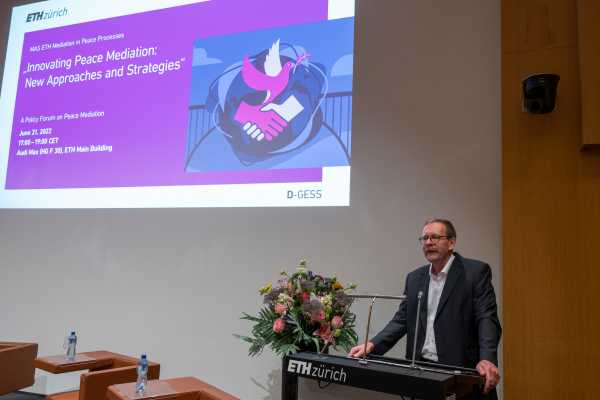Policy Forum 2022
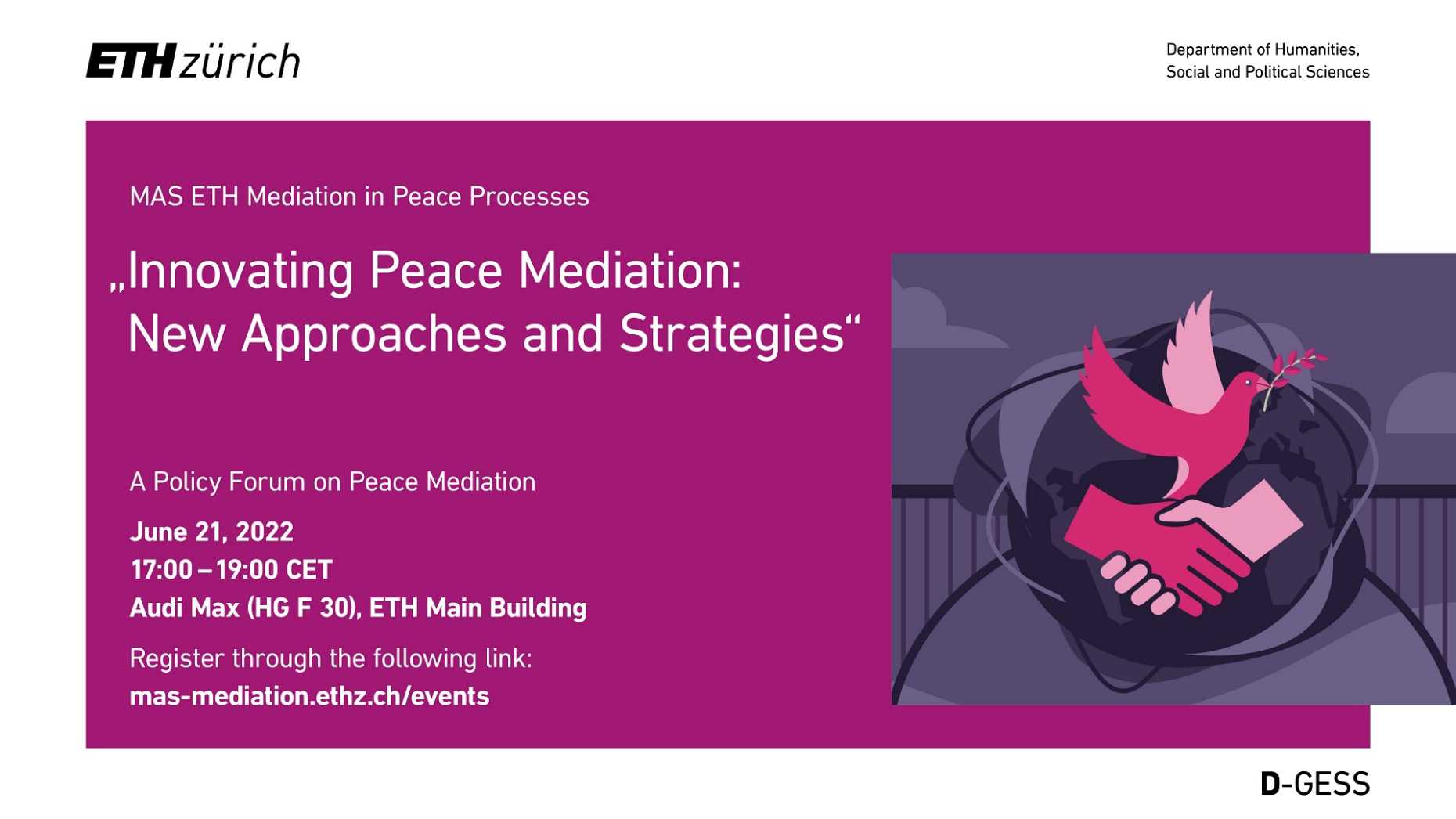
Innovating Peace Mediation: New Approaches and Strategies - A Policy Forum
The peace and security landscape of today’s world is in a flux. Changing dynamics in the global macro context – from heightened geopolitical tensions to the growing threat of climate change – are influencing the nature of armed conflict and posing new challenges to conflict resolution. Innovative approaches and strategies are therefore required to adapt and continuously professionalize peace mediation.
On June 21, 2022, the Master of Advanced Studies ETH Mediation in Peace Processes (MAS ETH MPP) organised an event titled “Innovation in Peace Mediation: New Approaches and Strategies” to foster discussions among mediation practitioners, policy-makers, and researchers on four broad macro trends in armed conflict (geopolitics, worldviews, technology, and environment) and their impact on the professionalization of peace mediation. The event aimed to contribute to our understanding of the dynamic relationship between these macro trends and peace mediation by addressing the following questions:
- How do global macro trends pertaining to geopolitics, worldviews, technology, and environment influence the dynamics of armed conflict?
- In what ways should current practices in peace mediation be adapted to these macro dynamics?
- What innovations (e.g., new tools, initiatives, formats, processes) do these four macro trends offer for the professionalization of peace mediation?
You can find a summary of the Policy Forum discussions Downloadhere (PDF, 1004 KB)vertical_align_bottom.
High-Level Panel Discussion on “Innovating Peace Mediation”
- An opening keynote speech by Ambassador Simon Geissbühler
- A high-level panel discussion moderated by Simon Mason (Head of the Mediation Support Team, ETH CSS), with:
- Mr. Michael Keating (Executive Director, European Institute of Peace);
- Ms. Katja Ahlfors (Director, Centre for Peace Mediation at Ministry of Foreign Affairs of Finland)
- Ms. Juanita Millan Hernandez (Senior Mediation Advisor for Security Arrangements, UN Standby Team);
- Mr. Sean Kane (Team Leader, Mediation Support Unit, United Nations).
Working groups on technology, worldviews, environment, and geopolitics:
The policy forum entailed parallel working groups on the four macro trends discussed at the event. The working groups were coordinated by thematic experts that guided the discussion and gave insights into the latest research, policy, and practice trends in their respective field.
The coordinators were as follows:
Geopolitics
- Dr. Sarah Hellmüller, Senior Researcher and SNSF Prima Project Leader, Centre on Conflict, Development and Peacebuilding (CCDP), Geneva Graduate Institute
- Mr. Benno Zogg, Senior Researcher and Team Head of the Swiss and Euro-Atlantic Security Team at the Center for Security Studies (CSS) at ETH Zurich
Technology
- Dr. Govinda Clayton, Senior Researcher in Peace Processes, Center for Security Studies (CSS) at ETH Zurich
- Dr. Sophie-Charlotte Fischer, Senior Researcher in the Swiss and Euro-Atlantic Security Team, Center for Security Studies (CSS) at ETH Zurich
Worldviews
- Dr. Emanuel Schäublin, Senior Program Officer, Mediation Support Team, Center for Security Studies (CSS) at ETH Zurich
- Ms. Mae Anna Chokr, Program Officer, Mediation Support Team, Center for Security Studies (CSS) at ETH Zurich
- Separate inputs provided by Dr. Marie-Joëlle Zahar, Professor of Political Science and Director of the Research Network on Peace Operations at the Université de Montréal; and Jean-Nicolas Bitter, Senior Adviser on Religion, Politics and Conflict at the Swiss Federal Department of Foreign Affairs.
Environment
- Dr. Simon Mason, Senior Researcher and Head of the Mediation Support Team at the Center for Security Studies (CSS) at ETH Zurich
- Ms. Olivia Lazard, Fellow at Carnegie Europe
Impressions MAS ETH MPP Policy Forum 2022
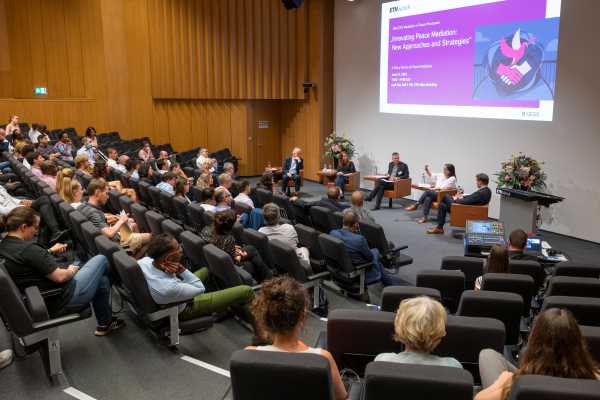 Ambassador Simon Geissbühler (Heidi Hostettler)
Ambassador Simon Geissbühler (Heidi Hostettler)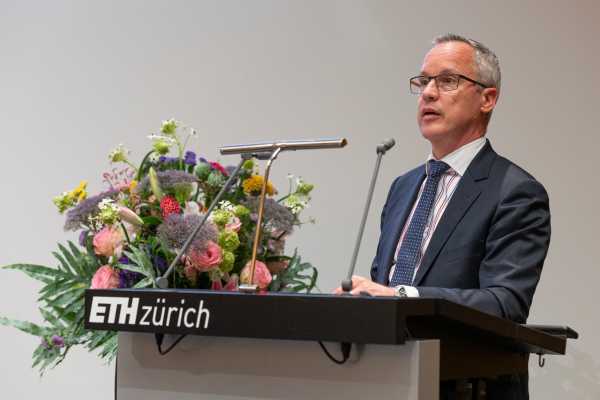 Panel MAS ETH MPP Policy Forum 2022 (Heidi Hostettler)
Panel MAS ETH MPP Policy Forum 2022 (Heidi Hostettler)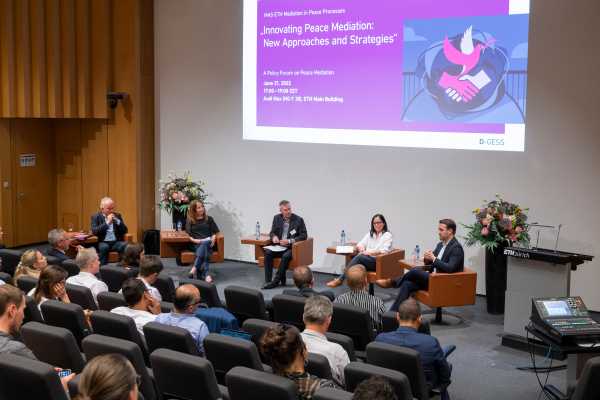 Ms. Juanita Millan Hernandez, Senior Mediation Advisor for Security Arrangements, UN Standby Team (Heidi Hostettler)
Ms. Juanita Millan Hernandez, Senior Mediation Advisor for Security Arrangements, UN Standby Team (Heidi Hostettler)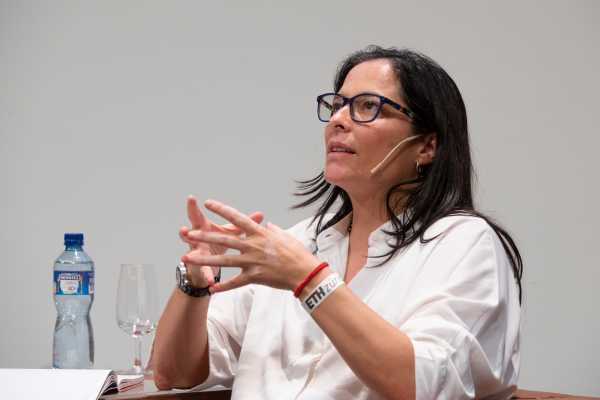 Mr. Sean Kane, Team Leader, Mediation Support Unit, United Nations (Heidi Hostettler)
Mr. Sean Kane, Team Leader, Mediation Support Unit, United Nations (Heidi Hostettler)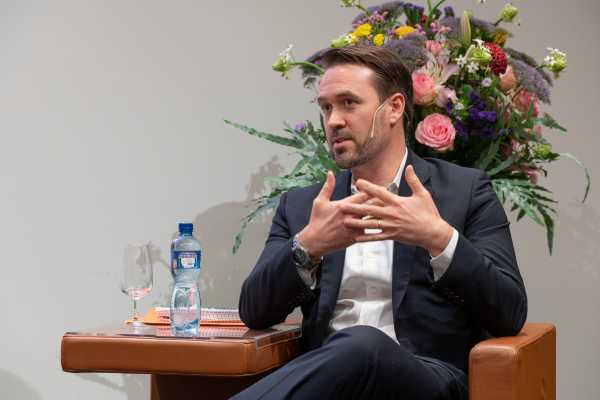 Ms. Katja Ahlfors, Director, Centre for Peace Mediation at Ministry of Foreign Affairs of Finland (Heidi Hostettler)
Ms. Katja Ahlfors, Director, Centre for Peace Mediation at Ministry of Foreign Affairs of Finland (Heidi Hostettler)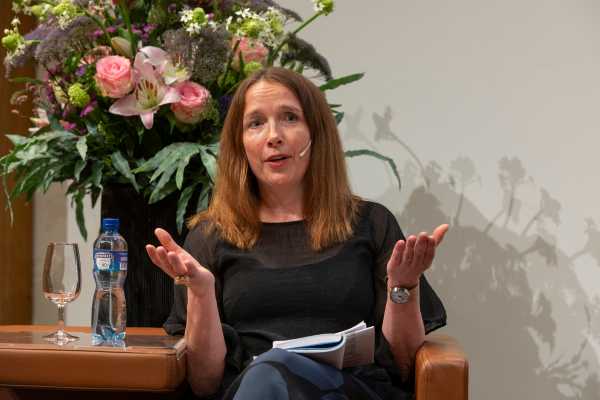 Mr. Michael Keating, Executive Director, European Institute of Peace (Heidi Hostettler)
Mr. Michael Keating, Executive Director, European Institute of Peace (Heidi Hostettler)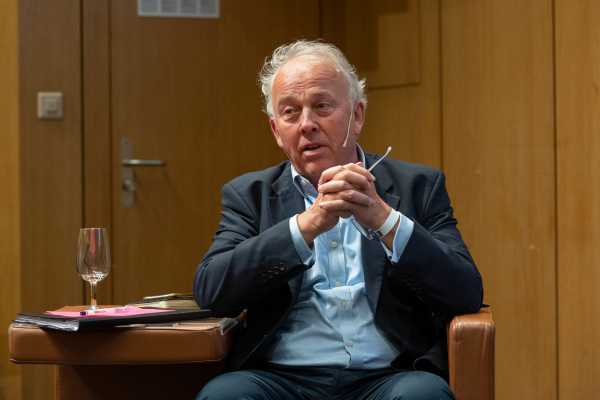 Prof. Dr. Andreas Wenger (Heidi Hostettler)
Prof. Dr. Andreas Wenger (Heidi Hostettler)